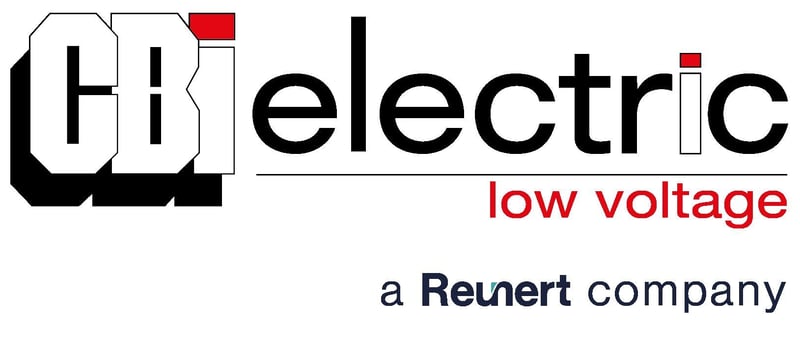Africa’S Solar Boom- What Businesses Must Do Now TO Reap The Benefits
Submitted by: APO Group - Africa Newsroom Save to Instapaper
As Africa’s solar energy market continues to expand in 2025, organisations have an opportunity to capitalise on its long-term benefits
JOHANNESBURG, South Africa, May 8, 2025/APO Group/ --
With 2.5 gigawatts-peak (GWp) (http://apo-opa.co/4iQtUCp) of solar capacity added across Africa in 2024 and 194.34 GWp expected in 2025, the continent is fast becoming a global hotspot for solar energy growth. Leading this shift are the commercial and industrial (C&I) sectors, where photovoltaic (PV) systems are being installed on-site at businesses, educational institutions, and government facilities to meet their own energy demands.
Dr Andrew Dickson, engineering executive at CBi-electric: low voltage (www.CBi-lowvoltage.co.za), explains that multiple factors are accelerating the continent’s switch to solar. “Energy poverty remains a major issue across Africa, with reliable grid electricity reaching only 14% (http://apo-opa.co/4jICofV) of Zimbabweans, for example.”
He adds that unreliable power supply is another key driver. “Persistent nationwide blackouts are affecting countries like Botswana (http://apo-opa.co/3EZvQKM), disrupting day-to-day operations. And in hydro-electric dependent countries such as Zambia (http://apo-opa.co/3RRqvrX), climate change is reducing water levels, leading to lower electricity generation and higher prices.”
Dr Dickson points out that in countries like Namibia which are dependent on electricity imports, affordability is a growing concern, with N$8.8 billion (http://apo-opa.co/3EZvSlS) expected to be spent between January 2024 and December 2025. “As a result, Namibia now has the highest (http://apo-opa.co/3EZvSSU) electricity prices in Southern Africa. Yet it has a unique geographic advantage: its solar PV systems can produce twice (http://apo-opa.co/3EZvSSU) as much electricity as comparable systems in central Europe.”
Some African nations are proactively investing in solar to reduce their grid dependence. “Malawi is rolling out its National Compact for Energy (http://apo-opa.co/3GMlxKC), which creates a competitive framework for private-sector investment in off-grid solar through grants, subsidies, and credit lines that improve access to foreign exchange,” he notes.
Safeguarding solar investments
The shift to solar is also being driven by cost-effectiveness. Dr Dickson shares that on-site solar is now cheaper (http://apo-opa.co/3YDs1BD) than the electricity tariffs paid by C&I clients in at least seven sub-Saharan markets.
Pointing to research by GreenCape (http://apo-opa.co/3Z6UyzC), which found that solar PV can reduce business energy costs by 15%, with a return on investment reached within three to 12 years, he highlights that after that, businesses can benefit from up to 15 years of free electricity.
However, Dr Dickson stresses that unlocking these savings requires protecting system components from damage and disruption. “Voltage spikes caused by lightning or grid instability can seriously damage inverters and batteries. Installing surge protection devices (SPDs) is critical, not just to prevent damage, but also to avoid voiding manufacturer warranties.”
Arcing is another serious threat. “When electrical currents jump across gaps, the heat generated can damage components or even start fires,” he explains. “DC circuit breakers designed specifically for solar systems are essential for mitigating this risk. They’re built to handle the direct current generated by PV panels, ensuring safer and more reliable operation.”
Smart tech enables smarter solar use
In addition to physical protection, Dr Dickson advises businesses to embrace smart energy management tools to extend system life and optimise performance. “A smart power indicator can detect grid interruptions and send immediate alerts, helping businesses respond quickly. These systems can temporarily disconnect non-essential high-energy devices during an outage to prevent overload and preserve battery life. At the same time, they ensure that essential systems like security and lighting continue operating during downtime.”
Optimising solar ROI in 2025
He believes that the key to unlocking solar’s full potential lies in strategic system design and management. “By combining surge protection, DC breakers, and monitoring tools, businesses can reduce unexpected costs, minimise downtime, and extend the life of their investment.”
“As Africa’s solar energy market continues to expand in 2025, organisations have an opportunity to capitalise on its long-term benefits. With the right technologies and safeguards in place, solar is not only a clean energy solution it’s a strategic asset that pays off,” concludes Dr Dickson.
Latest Press Articles
- SA New Vehicle Sales Climb 22% In May As Interest Rate CUT Boosts Confidence
- Fore Group Launches Redesigned Website With SO Interactive
- From Learning TO Earning - How TO Accelerate Africa's Digital Economy
- Engineers' Liability For Professional Negligence
- Melanie Paltoglou’s Journey From Childhood Curiosity To Wine Country Inspiration In Hemel-en-Aarde
- Vodacom Names New CEO For International Operations
- The BIG Biodiversity Challenge 2025 Is Open For Entry
- Weber Shandwick Appoints Sibongile Mqakayi As Client Growth Lead
- Tutoring - NOT Just For Struggling Students - A New Normal For SA Kids
- French Wine Powerhouse Advini Set TO Expand ON Its 15 Year-old Footprint In South Africa As New Opportunities Beckon
- National Arts Festival Board Announces 2 New Appointments
- South Africa's Commerce Media Moment Has Arrived - The Experts Weigh In
- Africa-Paris Declaration - Financing Africa’s Energy Future
- Jockey Skimmies Are Back - The Iconic Seamfree Essential Returns By Popular Demand
- Mining In Motion - Ghana Unveils 5-pillar Strategy TO Transform The Mining Industry
The Pulse Updates
- Switching On The Future - Landmark Electricity Expo Comes To Joburg (June 3, 2025)
- Timeless, Bold, And Distilled With Care - Just Like Dad (June 2, 2025)
- New Report Reveals Msme Funding Realities In South Africa – And What Must Change (May 30, 2025)
- Opinion Piece: Incorporating Ai Into Workforce Planning (May 26, 2025)
- Bridging The Gap: Why Finance And Hr Must Collaborate For Business Success (May 19, 2025)
